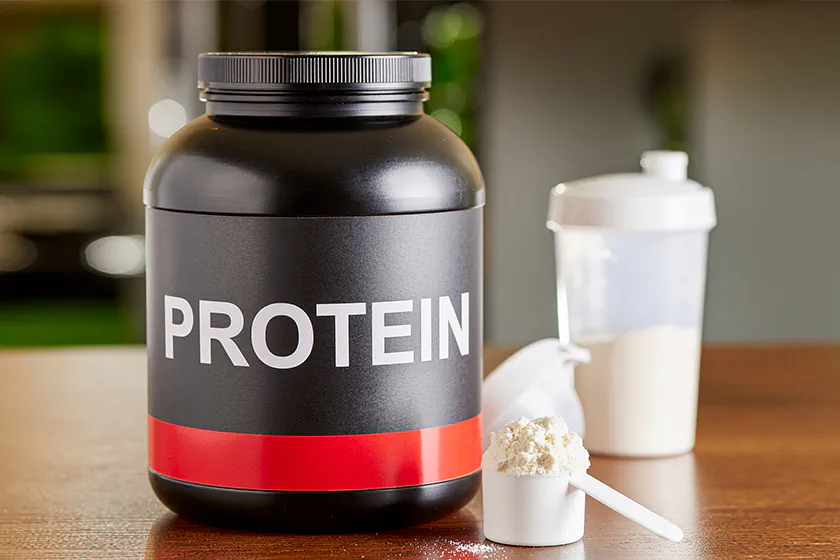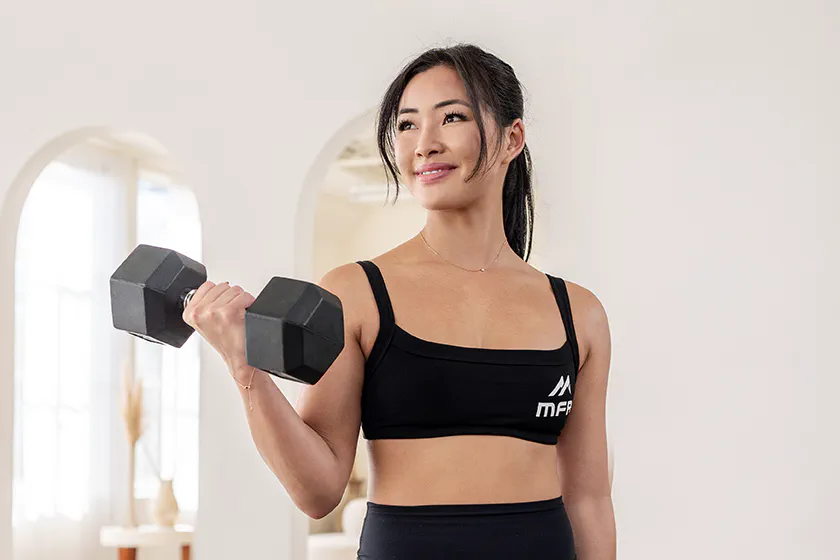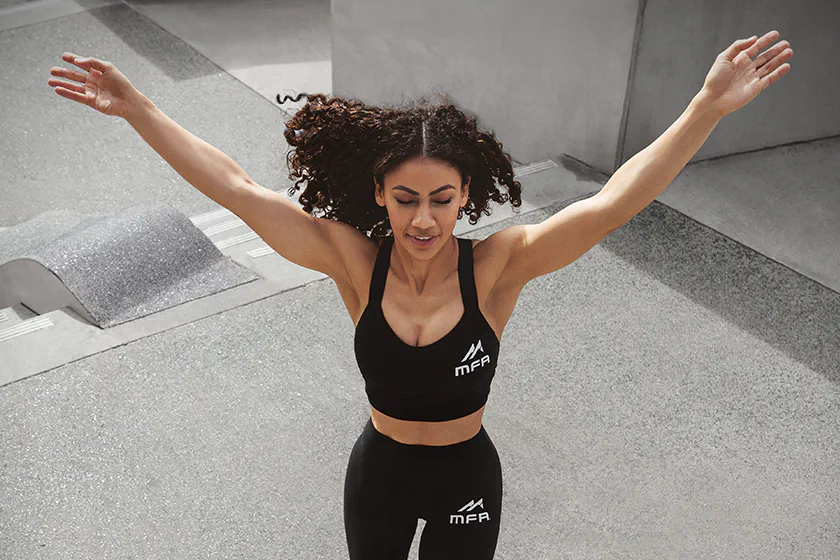How to Choose the Best Protein Powder for You

Whey, Plant-Based, or Casein – Which protein powder is best for you?
There is no doubt that protein powders are the most popular supplements in fitness. However, there are so many options available. That’s what makes choosing the right one so confusing. The three main types are:
- Whey
- Plant-based
- Casein protein
Each type has unique benefits, absorption rates, and ideal uses. In this article, we break down the science behind each protein type. We also compare their benefits and drawbacks to help you determine which one fits your needs best.
Whey Protein: The Gold Standard for Fast Absorption
Whey protein is derived from milk and is separated during cheese production. Because of its fast digestion, it is ideal for post-workout recovery. There are three main types of whey protein:
- Concentrate,
- Isolate, and
- Hydrolysate
Whey concentrate contains about seventy to eighty percent protein with some lactose and fat. It is the most affordable option.
Whey isolate is processed to remove most of the lactose and fat. It contains over 90% protein. Therefore, it is a better option for those who are lactose-sensitive.
Whey hydrolysate is pre-digested for rapid absorption and is often used in medical protein supplements.
What are the benefits of whey protein?
Whey is a complete protein. It contains all nine essential acids. Leucine, in particular, is crucial for muscle growth. Other benefits of whey protein include its fast absorption rate, typically peaking in the bloodstream within one to two hours after consumption (ideal for post-workout recovery).
Numerous studies support whey protein’s effectiveness for muscle hypertrophy and recovery. On the other hand, whey protein does contain lactose. It can cause bloating or digestive issues in sensitive individuals, and it’s not suitable for vegans.
Whey protein is best for lactose-tolerant fitness enthusiasts, athletes, and bodybuilders who need quick protein synthesis after workouts.
Plant-Based Protein: The Vegan and Digestible Option
Plant-based proteins are derived from sources like peas, rice, hemp, soy, or pumpkin seeds. They are dairy-free and suitable for vegans or those with lactose intolerance. The most common types are:
Pea protein. High in branched-chain amino acids (BCAAs) and is easily digestible.
Rice protein. Hypoallergenic but low in lysine. Often combined with pea protein to create a complete amino acid profile.
Soy protein. A complete protein but it contains phytoestrogens
Hemp protein. Hemp contains omega-3 fatty acids but is lower in protein per scoop than other options.
What are the benefits of plant-based proteins?
The benefits of plant-based protein include being lactose-free and generally easier to digest. It’s also more sustainable and ethical, with a lower environmental impact than dairy-based proteins.
Plant-based proteins are safe for active individuals with dairy or gluten allergies. However, many plant-based proteins are incomplete (they lack one or more essential amino acids). This can be addressed by combining different plant proteins.
Plant-based proteins also have a grittier texture and may not mix as smoothly as whey. Additionally, they usually have lower leucine content. So, higher doses are necessary to achieve the same muscle-building effects as whey.
The bottom line is that plant-based protein is best for vegans, lactose-intolerant individuals, and eco-conscious consumers.
Casein Protein: The Slow-Release Nighttime Protein
Casein is another milk-derived protein. Unlike whey, it digests slowly over several hours. Casein is ideal for preventing muscle breakdown during periods of fasting, such as overnight. It forms a gel-like substance in the stomach, which slows digestion and provides a steady release of amino acids into the bloodstream.
The Benefits of Casein
This type of protein possesses anti-catabolic properties. It helps prevent muscle breakdown, especially during sleep. Also, casein keeps you feeling full longer, which can be helpful for weight loss.
Casein is rich in calcium and glutamine, supporting bone health and immunity. However, it also contains lactose and can cause bloating in some people. Its slow digestion also means it’s not the best choice for post-workout recovery when fast absorption is preferred.
Casein is best used before bed to provide a steady supply of amino acids overnight or as a meal replacement (for prolonged satiety).
How do different protein types compare?
Your fitness goals and dietary needs can help you choose the right type of protein:
- Whey protein is the easiest and fastest to digest. Therefore, it is best for post-workout recovery.
- Plant-based proteins are ideal for vegans, those with lactose intolerance, or anyone looking for a more sustainable option.
- Casein is best for nighttime use or when you need slow-digesting protein to keep you full and prevent muscle breakdown.
Digestion speed also varies:
- Whey digests in one to two hours
- Plant-based in two to three hours
- Casein in four to six hours
For muscle growth, whey is the most effective due to its rapid absorption and high leucine content. Plant-based proteins can be nearly as effective, with a blend that provides all essential amino acids. Casein supports muscle growth over a longer period and prevents muscle loss during fasting periods.
Whey and casein are not vegan-friendly, while plant-based proteins are. Whey and casein contain lactose, which can be problematic for some. Plant-based proteins are lactose-free.
When it comes to price, whey concentrate is generally the most affordable, while plant-based and casein proteins can be more expensive.
What are some common mistakes you’ll want to avoid?
There are several mistakes people make when using protein powders:
- Mistake number one is using the wrong type for their goals, such as taking casein post-workout when whey would be more effective.
- Another common mistake is ignoring ingredient quality (some powders contain fillers or artificial sweeteners).
- Over-relying on protein powders instead of getting protein from whole foods is also a mistake. Whole foods should always be the primary source of nutrients.
- Finally, not checking for third-party testing can lead to consuming products with banned substances or inaccurate labeling. Look for certifications like NSF or Informed-Sport to ensure quality.
The Final Word
We are not all the same. The best protein powder is the one that meets your particular needs. That’s why you need to have clear goals before making the choice. Answering these questions might help in the process:
- Do you want muscle growth and fast recovery?
- Do you have dietary restrictions?
- Would you benefit from prolonged fullness?
Sometimes combining different protein types is the best option. However, this can strain your budget. Take all of these factors into consideration and you’ll set yourself up for optimal results.
Dr. Rosmy Barrios is a physician specializing in regenerative and aesthetic medicine. She serves as the Medical Director of the Regenerative Medicine Department at P.A.R.K.S Clinic. With over a decade of international experience, Dr. Barrios focuses on anti-aging therapies, cellular regeneration, and holistic wellness. She is also a published health writer and advisor, contributing to platforms like Forbes and Yahoo Health, and is a member of several global aesthetic medicine associations.



